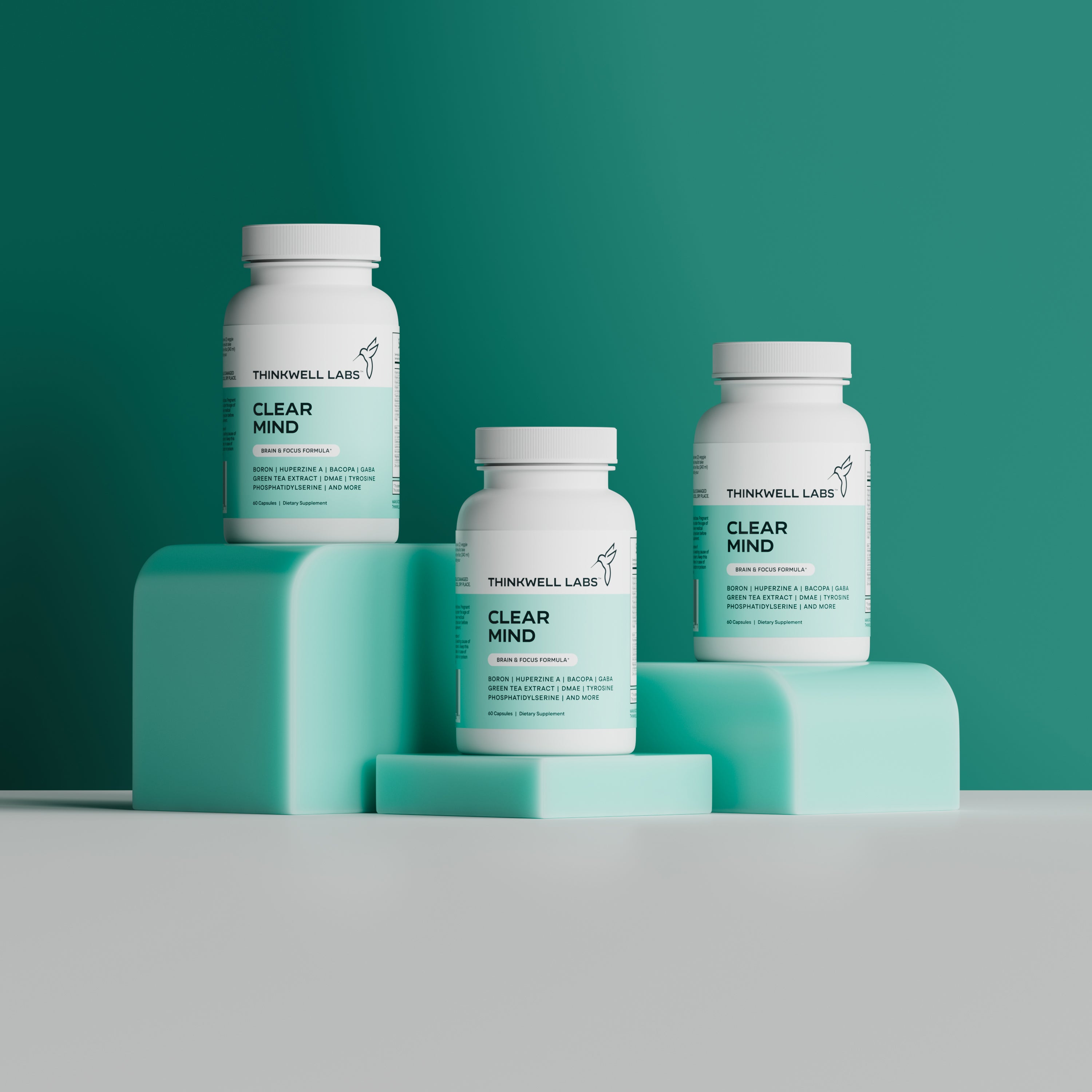Science Behind the Product - Clear Mind, Brain & Focus Formula
The ingredients in our Clear Mind - Brain & Focus Formula have been extensively studied by researchers worldwide. Here are some notable research findings:
Key Research Studies
Bacopa Monnieri Research In a gold-standard clinical trial, healthy adults who took 300mg of Bacopa monnieri extract daily for 12 weeks showed major improvements in memory, focus, mental flexibility, and reasoning, with measurable benefits starting as early as Day 14. Participants also had lowercortisol (stress hormone) and better sleep. One dose even improved concentration within 3 hours, with zero safety concerns reported. Source
DHA Research Findings A comprehensive review of DHA research revealed significant positive effects on multiple aspects of health. Studies have shown DHA's beneficial impact on conditions including hypertension, arthritis, atherosclerosis, depression, diabetes mellitus, myocardial infarction, and thrombosis. These findings underscore DHA's crucial role in both brain and overall health. Source
Boron & Brain Function A USDA-backed study found that low boron intake led to slower reaction times, poorer memory, and weaker focus in healthy older adults. Supplementing with just 3mg of boron per day improved brainwave activity and enhanced cognitive performance, especially attention, short-term memory, and hand-eye coordination. SourceGreen Tea Extract Research A clinical study of 264 middle-aged and older adults found that regular green tea drinkers had better memory, sharper executive function, and a lower risk of mild cognitive impairment. Higher tea consumption was linked to reduced levels of Alzheimer’s-related blood markers(pTau181, Aβ42) and stronger antioxidant defense (↑ SOD, ↑ GPx, ↓ MDA). Drinking 3+ cups daily had the strongest brain-protective effects Source
Effect of phosphatidylserine on cognitive function in the elderly: A systematic review and meta-analysis A systematic review of 9 human studies—including 5 randomized controlled trials—found that phosphatidylserine (PS) significantly improved memory and cognitive function in older adults experiencing age-related decline. Doses ranged from 100–300 mg/day over 6 weeks to 6 months, and no adverse effects were reported. The strongest benefit was observed in memory performance among those already noticing cognitive changes. Source
The Health Benefits of DMAE DMAE (Dimethylaminoethanol) is thought to boost levels of acetylcholine, a neurotransmitter linked to learning and memory. Clinical research suggests that DMAE combined with pyroglutamate (DMAE-pGlu) can support cognitive performance, especially under stress, by enhancing memory and recall tasks. While DMAE alone has shown potential for supporting focus and skin firmness, the evidence is still emerging. Source
The Effect of Oral GABA on the Nervous System: Potential for Therapeutic Intervention GABA is your brain’s main calming chemical. Oral GABA supplements have been shown to promote relaxation, improve sleep, and reduce stress, even helping shift brain waves into a more relaxed state. Studies also suggest GABA may lower blood pressure and reduce anxiety, with no serious side effects. Source
